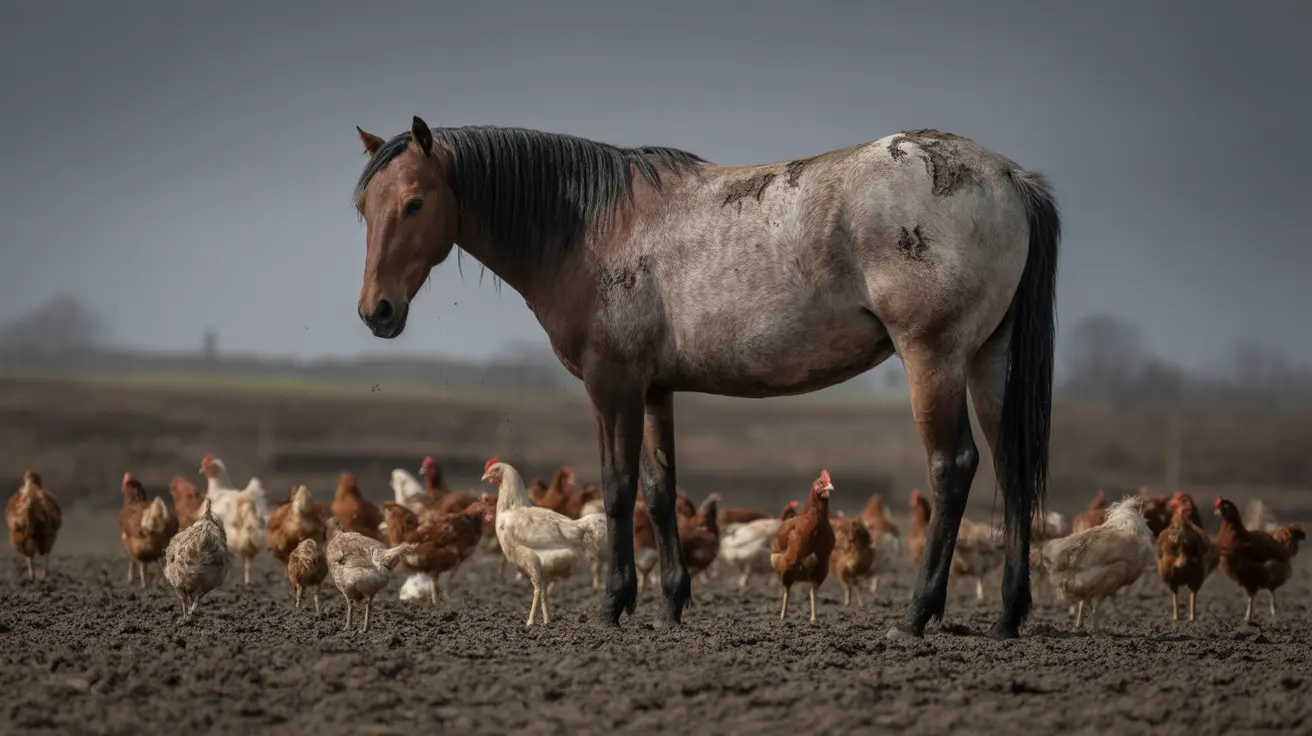A troubling case of animal abandonment North Carolina has emerged in Beaufort County, where Autum Johnson faces serious charges related to the neglect of multiple farm animals. According to warrants filed in the case, Johnson allegedly abandoned several horses and chickens for at least three days, leaving them without essential food and veterinary care. This incident highlights the critical importance of understanding animal welfare responsibilities and the severe legal consequences that can follow when pet and livestock owners fail in their duty of care.
The charges against Johnson underscore the stringent animal cruelty laws NC has in place to protect vulnerable animals from neglect and abandonment. For pet parents and livestock owners across North Carolina, this case serves as a stark reminder of the legal and ethical obligations that come with animal ownership, particularly when caring for large animals like horses that have significant daily care requirements.
Understanding Animal Cruelty Laws NC and Legal Consequences
North Carolina takes animal welfare violations seriously, with comprehensive legislation designed to protect all animals from mistreatment. The charges in this case likely fall under the state's animal abandonment statute 14-361.1, which addresses the unlawful abandonment of animals. When owners fail to provide adequate food, water, shelter, and necessary veterinary care, they can face Class 1 misdemeanor animal cruelty charges.
Pet abandonment legal penalties in North Carolina can include substantial fines, possible jail time, and restrictions on future animal ownership. These consequences reflect the state's commitment to preventing animal suffering and holding owners accountable for their responsibilities. The involvement of Beaufort County animal services demonstrates how local authorities work to investigate and address reported cases of neglect.
Horse Neglect Consequences and the Reality of Animal Suffering
The specific mention of horses in this case brings attention to the serious nature of farm animal neglect laws. Horses are large animals with complex daily needs, requiring regular feeding, access to clean water, appropriate shelter, and routine health monitoring. When considering how long can horses survive without food, experts note that horses can face serious health complications within just 24-48 hours without proper nutrition, making the alleged three-day abandonment particularly concerning.
Similarly, chicken abandonment penalties exist because these birds, while smaller than horses, are equally vulnerable when left without care. Chickens require daily feeding, fresh water, protection from predators, and appropriate housing conditions to maintain their health and wellbeing.
The Role of North Carolina Animal Control and Community Reporting
Cases like this often come to light through community members who notice signs of animal distress or abandonment. North Carolina animal control agencies, including those in Beaufort County, rely on public reporting to identify situations where animals may be suffering from neglect. The animal welfare hotline North Carolina operates provides a crucial resource for concerned citizens to report suspected cases of animal mistreatment.
When animal control officers investigate reports of neglect, they assess the animals' living conditions, health status, and access to basic necessities. In severe cases like the one involving Johnson, immediate intervention may be necessary to provide emergency care for the affected animals and remove them from dangerous conditions.
Prevention and Responsible Animal Ownership
For current and prospective animal owners, this case emphasizes the importance of understanding the full scope of responsibilities that come with pet and livestock ownership. Proper planning for animal care includes not only daily feeding and watering but also arranging for continued care during absences, maintaining relationships with veterinary professionals, and ensuring adequate shelter and living conditions.
If circumstances arise that make continued animal ownership impossible, responsible owners must seek appropriate rehoming options rather than simply abandoning their animals. Many communities offer resources to help struggling pet owners, including low-cost veterinary services, temporary fostering programs, and rehoming assistance.
Frequently Asked Questions
What are the legal consequences of abandoning animals in North Carolina?
In North Carolina, animal abandonment can result in Class 1 misdemeanor charges, which may include fines up to $200 and up to 120 days in jail. Repeat offenders or cases involving severe neglect may face enhanced penalties and restrictions on future animal ownership.
How long can a horse or chicken survive without food and water?
Horses can begin experiencing serious health problems within 24-48 hours without food and may face life-threatening complications within days. Chickens are similarly vulnerable and can suffer severe health consequences within 24-48 hours without access to food and water. Both species require daily care to maintain their health.
What should I do if I suspect animal neglect or abandonment in my community?
If you suspect animal neglect or abandonment, contact your local animal control services or the North Carolina animal welfare hotline immediately. Provide specific details about the location, animals involved, and observed conditions. Do not attempt to intervene directly, as this could complicate the investigation or put you at risk.
Moving Forward: Protecting Animal Welfare
The charges against Autum Johnson in Beaufort County serve as an important reminder that animal ownership comes with serious legal and ethical responsibilities. As this case moves through the legal system, it reinforces North Carolina's commitment to protecting vulnerable animals and holding neglectful owners accountable for their actions. For pet parents and livestock owners throughout the state, understanding these obligations and the available resources for responsible animal care remains essential for preventing similar tragedies and ensuring the wellbeing of all animals in our communities.






